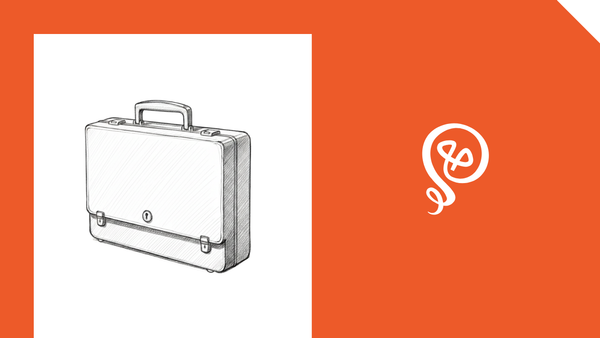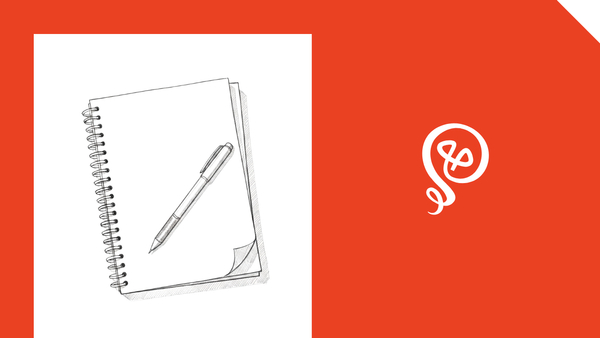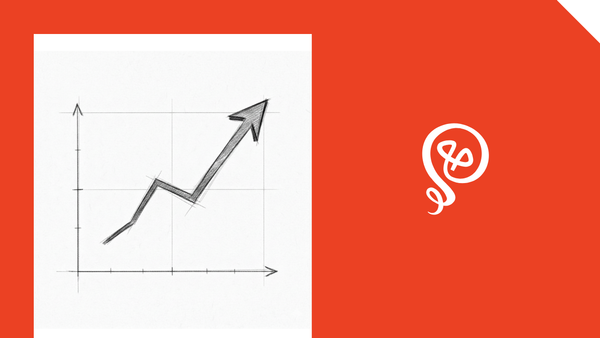6 Business Investments for Solopreneurs
How to spend your hard-earned money.

It's easy to plan for your recurring monthly subscriptions. They're the same amount every month, or you pay annually and know how much you'll spend.
It's harder when an expense costs more because you're parting ways with a lot of cash in your business. Is it worth the cost? Is it worth the risk of having less cash on hand?
Part of running a business includes making investments: something you think will save you time or generate more revenue.
Here are some larger investments I've made in my business that were worth the cost.
1. Outsourcing admin or repetitive work
For a long time, I ran my solo business entirely by myself (with a little help from Zapier [affiliate link]). But eventually, I reached the limits of what I could automate. It was either put in additional hours myself, leave work unfinished, or hire some help.
I chose to hire a virtual assistant. She helps with tasks like creating social posts in Canva and publishing completed drafts to my blog. VAs are also really good at tasks like inbox triage, managing your calendar, or organizing files.
By hiring a VA, you can free up your time for higher-value work, like client projects or business strategy.
My VA does 5 hours of work for me per week, and it's part of my business budget. However, if you're not ready for the ongoing commitment, you can hire a VA for project-based work. If you've got something you've been putting off because you simply don't have time, a VA can help you.
2. Hiring an expert instead of learning something new
When I first started writing online, I hired someone to help me build an email sequence for an eBook I created. I had very little experience with email sequences. Not only did the person write the copy, but also set everything up in Kit (formerly ConvertKit) for me [affiliate link].
Was that something I could have done myself? Sure. But I was new to Kit at the time. And rather than writing an email sequence that may have fallen flat, I could rely on someone with more experience. Once I had more confidence, I tweaked the sequence and replicated it across additional digital products.
If you're thinking about hiring an expert, ask yourself a few questions:
- Will learning this myself benefit me in the future?
- Is my time better spent on other things?
- What's the value in hiring someone to help me finish this project faster?
The last point — finishing a project faster — often helps you see a return on your investment (ROI). You can start earning more, make fewer mistakes, or preserve your own time/energy.

3. A coach or course that moves the needle
No one has all the answers for their business all the time. A coach can help you see things from a new perspective. A course might give you some actionable steps or teach you a specific skill you need to change your business.
Hiring a coach or buying a course comes with a big caveat though: they have to be worth the money. There are a lot of bad coaches and courses out there. Start with a recommendation from someone you know or do your research to make sure the person is reputable.
I started working 1:1 with a coach when I was at a crossroads with my business. A medical diagnosis (a brain tumor) was about to change my life drastically and, potentially, how I work. I needed someone to act as a sounding board and help me think through re-shaping my business (if necessary).
With a coach or course, prioritize practical outcomes, such as your pricing strategy, building an online presence, or shifting your mindset.
4. Legal help when it matters
A strong contract protects you from scope creep and late payments. Yet only 28% of freelancers use a contract with every project, according to the Freelancers Union.
There are two issues. One, freelancers don't want to pay a lawyer to create a contract. Two, even with a contract, freelancers aren't comfortable editing the terms.
I started with a free contract template I found online, but I had previous experience drafting contracts, so I was comfortable editing it. I later hired a lawyer to write a more professional contract for me.
At a minimum, you should purchase a contract template. I've purchased contracts from Boss Contract Society (and then edited them to meet my needs).
5. Professional design (when DIY won’t cut it anymore)
Like most freelancers, I used Canva for all of my design needs, like a LinkedIn banner and social posts. But over time, it was quite obvious that my templates lacked cohesiveness and looked "homemade."
I finally hired a brand designer and worked with him to produce a huge range of assets, from social posts to eBooks. He spent a lot of time understanding who I am and what I do to come up with the right aesthetic. Design was one of the larger investments I made in my business, but the payoff was huge in the number of assets I received.
Good design makes you look more professional and brings consistency to your business.

6. Equipment that supports your work
I'm in front of a computer most of the day. So things like a large monitor and an ergonomic chair are must-haves for my home office. I also use a mechanical keyboard simply because it brings me joy and makes me feel fancy.
You'll also want to think about high-quality equipment based on the type of work you do. I'm a frequent podcast guest, so I've invested in a better webcam and microphone over the years. You might also consider nice headphones, if listening to music helps you focus.
Plan and save for your investments
Many of these investments are hundreds (if not thousands) of dollars.
I save for business investments in two ways. I have a "wish list" of things I'd like to invest in. And then I put money into a separate business savings account every month, specifically for business investments. Once I've saved up enough, I'll make the purchase.
Interestingly, sometimes once I've saved up, I decide that I no longer need the investment. My business priorities have shifted. That's a good thing: I'm not making impulse investments in my business, and confirming that I actually want to spend the money.
Even if you don't have a specific investment in mind yet, start setting money aside. That way, you'll have money saved up when you decide what makes the most sense for your business.
Not sure where to get started with a client proposal or contract? You can check out this free checklist and download a template to use.







